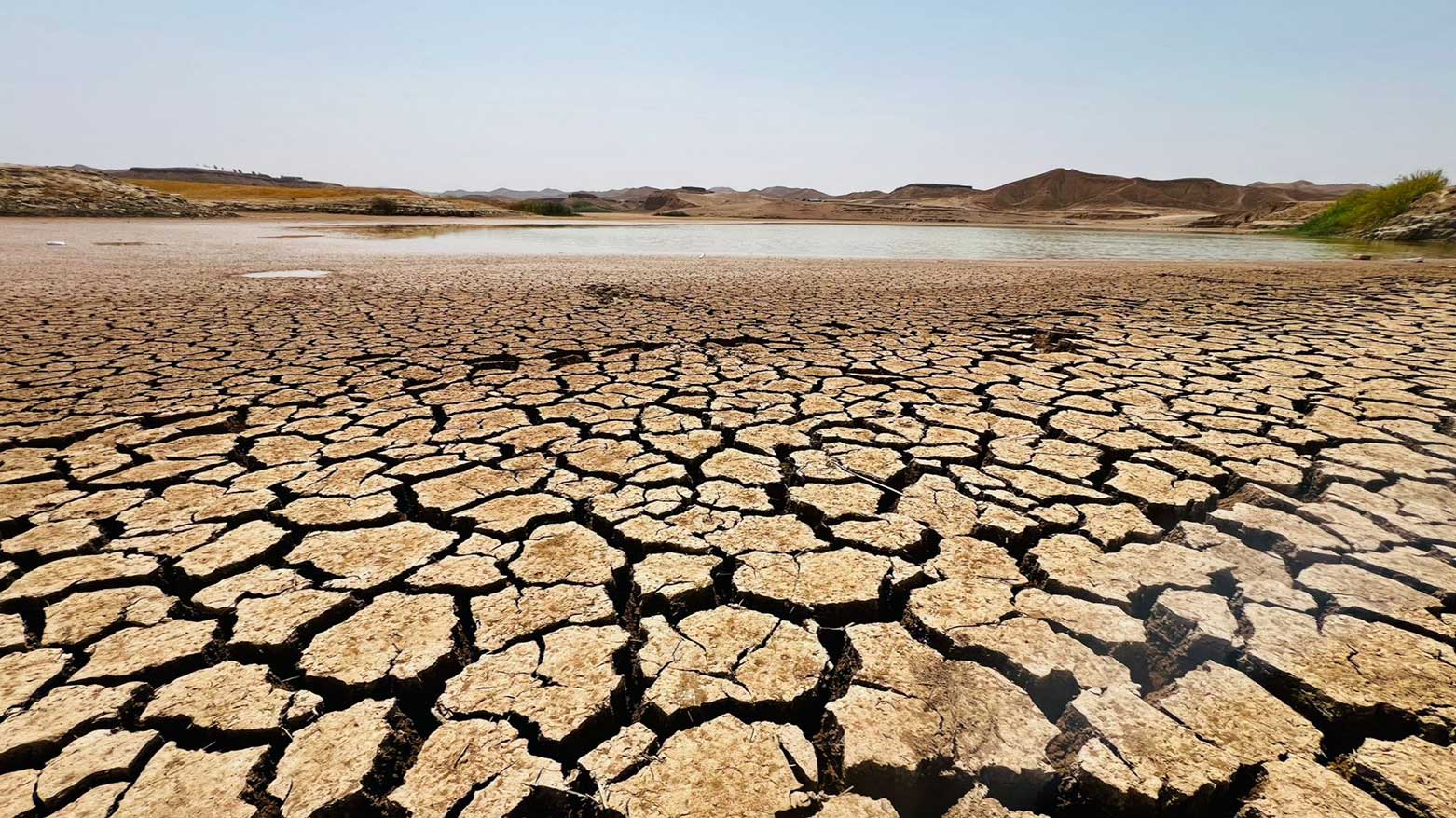Severe Drought Nearly Dries Up Qader Karam Dam, Threatens Livelihoods and Ecosystem in Kirkuk
The drastic reduction in water levels has led to the death of large numbers of fish. Birds that once depended on the dam for water and food have also vanished from the area, threatening the region’s ecological balance.

ERBIL (Kurdistan24) — The Qader Karam Dam in Kirkuk province has nearly dried up due to an intense drought sweeping through the region, sparking a severe crisis that is impacting local residents, agriculture, livestock, and the surrounding ecosystem.
The drought has forced livestock herders to abandon the area in search of water and grazing land, after the springs and wells they relied upon ran dry. Once-fertile agricultural lands have transformed into cracked, barren soil, resulting in significant losses for farmers.
The drastic reduction in water levels has led to the death of large numbers of fish. Birds that once depended on the dam for water and food have also vanished from the area, threatening the region’s ecological balance.
“The drought has severely affected the lives of our citizens,” said Nazem Ali, a member of the Qader Karam Municipal Council. “Most of the wells and springs have dried up, and the availability of water for residents has dropped sharply, increasing the suffering of local communities.”
Hardi Tayeb, a local resident, stressed that the crisis extends beyond water scarcity. “The effects of the drought have impacted agriculture, livestock, and the entire ecosystem,” he said.
Qader Karam Dam, which previously reached its full capacity of approximately 1.4 million cubic meters during the rainy seasons, has seen water levels plummet by nearly six meters this year. What remains of the dam has turned into cracked mud, signaling a potentially devastating loss of water storage.
Residents are urging authorities to clear silt from the dam basin and prepare for the upcoming rainy season, hoping to restore the dam’s storage capacity and mitigate future water shortages.
The Qader Karam crisis underscores the urgent need for comprehensive regional strategies to combat escalating climate challenges, enhance water resource management, and safeguard critical infrastructure that communities depend on for agriculture, livelihoods, and environmental stability.
